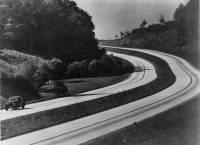Germany
From The Art and Popular Culture Encyclopedia

|
"What’s heaven? Heaven is where the police are British, the chefs are French, the mechanics are German, the lovers are Italian and the bankers are Swiss. So then, what’s hell? Hell is where the police are German, the chefs are British, the mechanics are French, the lovers are Swiss and the bankers are Italian." [...] Writers: Brothers Grimm, Goethe, Gutenberg, E. T. A. Hoffmann, Elfriede Jelinek, Franz Kafka, Thomas Mann, Leopold von Sacher-Masoch, Nietzsche, Arthur Schnitzler, Schopenhauer "In 2018 the European Google tax initiative is given a weaker version because Europe feared tariffs on German cars."--Sholem Stein |


|
Related e |
|
Featured: |
Germany is a country in West-central Europe. It is bordered on the north by the North Sea, Denmark, and the Baltic Sea; on the east by Poland and the Czech Republic; on the south by Austria and Switzerland; and on the west by France, Luxembourg, Belgium, and the Netherlands.
Various Germanic tribes have inhabited the northern parts of modern Germany since classical antiquity. A region named Germania was documented before AD 100. Beginning in the 10th century, German territories formed a central part of the Holy Roman Empire. During the 16th century, northern German regions became the centre of the Protestant Reformation. Following the Napoleonic Wars and the dissolution of the Holy Roman Empire in 1806, the German Confederation was formed in 1815. In 1871, Germany became a nation state when most of the German states unified into the Prussian-dominated German Empire. After World War I and the German Revolution of 1918–1919, the Empire was replaced by the semi-presidential Weimar Republic. The Nazi seizure of power in 1933 led to the establishment of a dictatorship, World War II, and the Holocaust. After the end of World War II in Europe and a period of Allied occupation, two new German states were founded: the Federal Republic of Germany, generally known as West Germany, and the German Democratic Republic, East Germany. The Federal Republic of Germany was a founding member of the European Economic Community and the European Union, while the German Democratic Republic was a communist Eastern Bloc state and member of the Warsaw Pact. After the fall of communism, German reunification saw the former East German states join the Federal Republic of Germany on 3 October 1990.
Today, Germany is a federal parliamentary republic led by a chancellor. With over 83 million inhabitants of its 16 constituent states, it is the second-most populous country in Europe after Russia, as well as the most populous member state of the European Union. Its capital and largest city is Berlin, and its financial centre is Frankfurt; the largest urban area is the Ruhr.
Germany is a great power with a strong economy; it has the largest economy in Europe, the world's fourth-largest economy by nominal GDP, and the fifth-largest by PPP. As a global leader in several industrial and technological sectors, it is both the world's third-largest exporter and importer of goods. A highly developed country with a very high standard of living, it offers social security and an universal health care system, environmental protections, and a tuition-free university education. Germany is also a member of the United Nations, NATO, the G7, the G20, and the OECD. Known for its long and rich cultural history, Germany has many World Heritage sites and is among the top tourism destinations in the world.
Contents |
German culture
German culture began long before the rise of Germany as a nation state. Due to its rich culture, Germany is often known as das Land der Dichter und Denker (the land of poets and thinkers).
Germany, over the centuries, has produced a great number of polymaths, geniuses and notable people, such as Albert Einstein, Ludwig van Beethoven, Johannes Kepler, Johann Wolfgang von Goethe, Immanuel Kant, Johann Sebastian Bach, Karl Marx, Richard Wagner, Martin Luther, Friedrich Nietzsche, Karl Benz, Georg Ohm, Rudolf Diesel, Johannes Gutenberg, Richard Strauss among others.
See also
- German art
- German cinema
- German exploitation
- German stereotypes
- German folklore
- German horror
- German language
- German literature
- German satire
- German underground
References
- The Haunted Screen (1952) by Lotte Eisner
See also
- Anti-German sentiment
- German car industry
- Culture of Germany
- Deutschtum
- German Modernism
- German Romanticism
- German art
- German counterculture
- German literature
- Nazi Germany
- Stereotype of Germans
- Weimar Berlin

